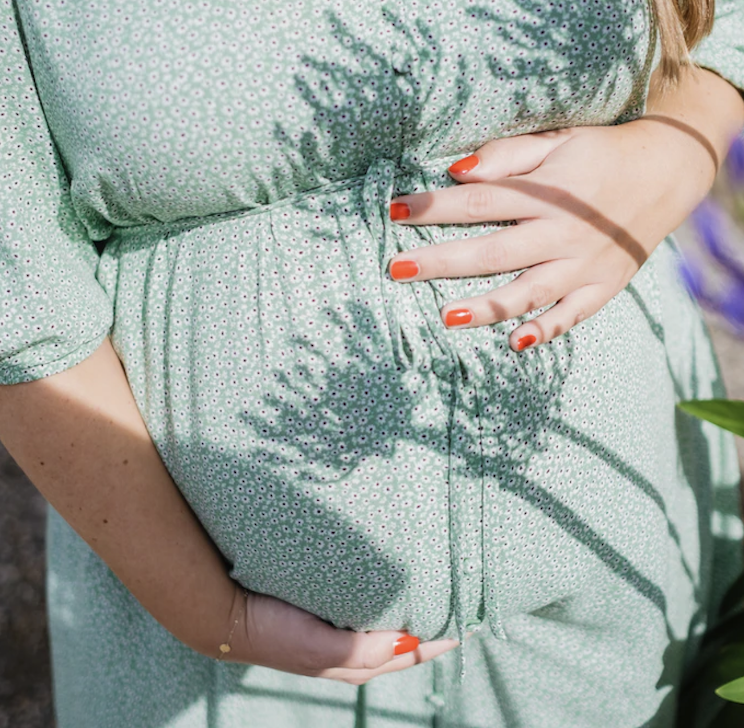Introduction
Proper hydration is vital during pregnancy. It not only supports increased blood volume and amniotic fluid but also helps flush out toxins and maintain overall health. Electrolytes play a crucial role in maintaining this fluid balance. Essential electrolytes such as sodium, potassium, calcium, and magnesium help regulate various bodily functions, including nerve signaling and muscle contraction.
Why Hydration Matters
- Increased Blood Volume: During pregnancy, a woman's blood volume increases by up to 50%, necessitating more fluids.
- Amniotic Fluid: Adequate hydration ensures the proper formation of amniotic fluid, which protects and cushions the baby.
- Toxin Removal: Water aids in flushing out waste products from both mother and baby.
Potential Benefits of Electrolyte Drinks
Electrolyte drinks can be a convenient way to prevent dehydration during pregnancy. They offer not only hydration but also essential minerals for maintaining fluid balance. We'll explore how these drinks might help alleviate symptoms like dizziness, dry mouth, and fatigue. This article on hydration requirements during pregnancy provides further insights into the importance of proper hydration during this critical period. Furthermore, we will delve into safety considerations, practical tips for staying hydrated, and the best sources of electrolytes for pregnant women.
Understanding Dehydration During Pregnancy
During pregnancy, it's important to stay hydrated as dehydration can have negative effects on both the mother and the baby. In this section, we will explore the signs, causes, and complications of dehydration during pregnancy.
Signs of Dehydration During Pregnancy
Dehydration can manifest in various ways. Pregnant women should be vigilant for:
- Dizziness
- Dry mouth
- Low blood pressure
- Overheating
- Fatigue
- Constipation
- Headache
- Dark urine
- Sunken eyes
- Irritability or confusion
Recognizing these signs early can help mitigate the risk of severe complications.
Causes of Dehydration During Pregnancy
Several factors contribute to dehydration during pregnancy:
- Increased Fluid Requirements: Hormonal changes and increased blood volume elevate water needs.
- Morning Sickness: Affecting 70%-80% of pregnant women, it leads to vomiting and loss of fluids. Severe cases (hyperemesis) exacerbate this issue.
- Diarrhea: Can increase fluid loss.
- Increased Sweating: Hormonal shifts can cause excessive sweating, particularly in hot weather.
Understanding these causes aids in proactive hydration management.
To learn more about maintaining hydration during pregnancy, you can refer to HydroBump's website. We provide valuable insights on this topic. Additionally, if you have specific concerns or need advice, you can reach out to us via our contact page.
The Role of Electrolytes in Pregnancy Hydration
Electrolytes are minerals that dissolve in water and carry an electric charge, playing a vital role in maintaining proper hydration levels within the body. During pregnancy, the need for specific electrolytes becomes even more crucial due to increased blood volume and hormonal changes. Key electrolytes include sodium, potassium, chloride, calcium, and magnesium.
Importance of Key Electrolytes- Sodium: Helps regulate fluid balance and blood pressure. It is essential for nerve function and muscle contractions.
- Potassium: Works closely with sodium to maintain fluid balance, supports muscle function, and helps regulate heart rhythms.
- Chloride: Often paired with sodium to help maintain fluid balance and is necessary for proper digestion.
- Calcium: Vital for bone health, muscle contractions, and blood clotting. It also supports fetal development.
- Magnesium: Involved in over 300 biochemical reactions in the body, including protein synthesis, muscle and nerve function, blood glucose control, and blood pressure regulation.
Electrolyte Balance During Pregnancy
Proper electrolyte balance is essential for:
- Regulating Blood pH Level: Electrolytes help maintain the body's acid-base balance, which is crucial during pregnancy to support metabolic processes and fetal development.
- Supporting Muscle Function: Muscle cramps are common during pregnancy. A balanced intake of electrolytes like potassium, calcium, and magnesium can alleviate these cramps by ensuring muscles contract and relax properly.
Maintaining adequate electrolyte levels can reduce the risk of dehydration-related complications. For more insights into how hydration impacts pregnancy stages such as postpartum periods, you may find this Hydration in Pregnancy resource from HydroBump useful.
Ensuring these electrolytes are part of your daily intake can significantly contribute to a healthier pregnancy journey.
Can Electrolyte Drinks Help Prevent Dehydration During Pregnancy?
Electrolyte drinks can be a valuable tool in aiding to prevent dehydration during pregnancy. These beverages are specifically formulated to replace essential minerals that are lost through sweat and bodily fluids. Typically containing a combination of sodium, potassium, and magnesium, electrolyte drinks help maintain the body's fluid balance and support bodily functions.
For pregnant women, electrolyte drinks offer particular benefits, especially in situations such as experiencing morning sickness or being exposed to hot weather conditions. These drinks can help prevent or alleviate dehydration during these challenging times.
Safety and benefits of consuming electrolyte drinks while pregnant:- Effectiveness: Electrolyte drinks have the ability to quickly hydrate the body, making them particularly useful for expectant mothers dealing with severe morning sickness (hyperemesis) or diarrhea, both of which can cause significant fluid loss.
- Convenience: These drinks provide a simple and convenient way to increase fluid intake. For instance, products like the Hydration Booster by HydroBump are specifically designed for pregnant women, offering an easy solution.
However, it is crucial to exercise caution when consuming electrolyte drinks during pregnancy:
- Safety Considerations: Always check the ingredients list before selecting an electrolyte drink. Some may contain high amounts of sugar or artificial sweetners that may not be ideal for consumption during pregnancy.
- Potential Risks: Excessive intake of certain electrolytes, such as sodium, can lead to imbalances in the body. Therefore, it is advisable to consult your healthcare provider before incorporating electrolyte drinks into your regular routine.
To ensure customer satisfaction with their hydration products, HydroBump has implemented a comprehensive return policy.
While using electrolyte drinks can certainly aid in maintaining proper hydration levels during pregnancy, it is essential to utilize them wisely and seek guidance from your healthcare provider. This proactive approach will help ensure the well-being of both you and your baby throughout the pregnancy journey.
Other Strategies for Maintaining Pregnancy Hydration
Several pregnancy-specific factors can impact hydration status, making it crucial to stay vigilant. Common challenges include:
- Morning Sickness and Hyperemesis: Morning sickness affects up to 70% of pregnant women, while hyperemesis gravidarum causes severe vomiting and nausea in about 2%. Both conditions can lead to significant fluid loss.
- Diarrhea: Hormonal changes and dietary adjustments during pregnancy can cause diarrhea, posing a risk for dehydration.
- Heat Exhaustion: Increased sweating due to hormonal shifts and hot weather amplifies fluid loss.
- Urinary Tract Infections (UTIs): Common in pregnancy, UTIs can dehydrate the body due to increased urination.
- Amniotic Fluid Levels: Adequate hydration is essential for maintaining healthy amniotic fluid levels, which protect the baby.
- Braxton Hicks Contractions: These “practice” contractions can be more frequent if you are dehydrated.
During the breastfeeding stage, continued hydration remains vital. Adequate fluid intake supports milk production and ensures your baby receives sufficient nourishment.
For additional support during breastfeeding, check out The Power of Pumping on the Move – the Ultimate Breastfeeding Tools from HydroBump.
Maintaining proper hydration throughout pregnancy and beyond not only benefits your overall health but also ensures a healthy environment for your baby.
Best Sources of Electrolytes for Pregnant Women
Nutritious Food Sources
To maintain proper electrolyte balance during pregnancy, it's important to incorporate certain foods into your diet. These foods are not only nutritious but also rich in essential electrolytes. Here are some options to consider:
- Sodium: Found in moderate amounts in foods like spinach, carrots, and celery.
- Potassium: Abundant in bananas, avocados, and sweet potatoes.
- Calcium: Present in dairy products such as milk, yogurt, and cheese, as well as fortified plant-based alternatives.
- Magnesium: Available in nuts like almonds, seeds such as pumpkin seeds, and leafy green vegetables.
- Chloride: Naturally occurring in table salt, but also found in foods like seaweed and certain vegetables.
Hydrating Fluids
In addition to food sources, hydrating fluids play a role in supplying electrolytes and other vital nutrients for maternal health. Consider the following options:
- Coconut Water: A natural source of potassium, magnesium, sodium, and calcium.
- Electrolyte Drinks: Formulated specifically to replenish lost electrolytes; brands like HydroBump have received positive reviews from other women who have used them.
- Milk: Offers calcium, potassium, and magnesium along with protein and vitamins.
- Fruit Juices: Orange juice is a notable example, providing potassium and magnesium.
Incorporating these foods and fluids into your daily routine can help ensure adequate electrolyte intake during pregnancy. For those seeking more personalized advice, consulting a healthcare provider is always recommended. If you're interested, you can also take a look at HydroBump's privacy policy to understand how they handle personal information.
Practical Tips for Preventing Dehydration in Pregnancy
Staying hydrated during pregnancy is crucial for both your health and your baby's development. Here are some practical tips to help maintain adequate hydration levels:
- Drink Water Regularly
Aim to drink at least 8-10 glasses of water daily. Carry a water bottle with you to remind yourself to sip throughout the day.
- Monitor Urine Color
Pale yellow urine is a good indicator of proper hydration. Dark urine may signal dehydration, prompting you to drink more fluids.
- Consume Hydrating Foods
Include water-rich fruits and vegetables in your diet, such as watermelon, cucumbers, and oranges.
- Limit Caffeine and Sugary Drinks
- Use Electrolyte Drinks Sparingly
If you choose to use electrolyte drinks, do so sparingly and consult your healthcare provider before adding them to your routine.
Consulting a healthcare provider is essential for personalized advice on managing hydration. This includes discussing the benefits and risks of electrolyte drinks during pregnancy and the postpartum period. They can provide tailored recommendations based on your unique needs, ensuring both you and your baby stay healthy and hydrated.
Overcoming common challenges:
Morning Sickness
Small sips of water or electrolyte solutions can help manage nausea without overwhelming your stomach.
Heat Exhaustion
Stay cool by wearing lightweight clothing and avoiding direct sunlight. Increase fluid intake during hot weather.
Conclusion
Prioritizing hydration is crucial for a healthy pregnancy journey. Maintaining proper fluid levels, supported by a balanced intake of essential electrolytes such as sodium, potassium, chloride, calcium, and magnesium, plays a vital role in overall maternal and fetal health.
Listening to your body's signals is key. Pay attention to signs like dizziness, dry mouth, and dark urine that may indicate dehydration. Choosing hydrating foods and fluids wisely ensures that you support your body's increased water needs during this special time.
Key Takeaways:
- Electrolyte Balance: Ensures efficient hydration and supports critical physiological processes.
- Hydrating Foods and Fluids: Opt for nutritious options rich in essential electrolytes.
- Consult Healthcare Providers: Seek personalized advice on managing hydration and considering the use of electrolyte drinks during pregnancy and postpartum periods.
Taking these steps will help maintain adequate hydration levels, contributing to a smoother pregnancy experience. If you have any concerns about dehydration or the use of electrolyte drinks, always seek guidance from your healthcare provider.











